- Home
- Andy McNab
Crisis Four Page 2
Crisis Four Read online
Page 2
We got the order to turn on our own oxygen, disconnect from the aircraft supply and stand by. Sarah was standing in front of Reg 1, who was to tandem jump with her. She had never failed to amaze me. She was an IG (Intelligence Group), the very top of the intelligence-service food chain, people who usually spend their lives in embassies, posing as diplomats. Their lives should be one long round of receptions and recruiting sources through the cocktail circuit, not running around, weapon strong. Then again, Sarah had always made a point of finishing the jobs herself.
She was masked and goggled up, looking for all the world as if she’d done this a thousand times. She hadn’t; her first jump ever had been three weeks before, but she took her job so seriously that she’d probably read ten books on freefall and knew more facts and figures than all of us lot put together.
She turned and looked for me. We got eye-to-eye and I gave her an everything-is-OK nod. After all, that was part of this job, to look after her.
The loadie motioned us towards the door. Our bergens, each containing forty pounds of equipment, were hanging from our rigs and down the back of our legs. We waddled forward like a gaggle of geese, putting weight on each foot in turn. Thankfully the bergens hadn’t needed to be fully laden. If everything went to plan, we’d only be on the ground for a few hours.
There was a pause of about five seconds as the loadie by the door spoke into his mike to the British Airways navigator, then he nodded to himself and swung into action. The door was about half the size of an average up-and-over garage door. Pulling out all the levers, he swung them anticlockwise, then pulled the handles towards him. Even though I had a helmet on, I heard the massive rush of air, and then a gale was thrashing at my sniper suit. Where the door had been there was now just a black hole. The tags on the aircraft’s luggage containers fluttered frantically. The freezing cold wind whipped at the parts of my face that weren’t covered by my mask. I pulled my jockey’s goggles over my eyes, fighting against the blast, gripping hard on to the airframe.
Seven miles below us lay Syria – enemy territory. We did our final checks. I wanted to get this jump out of the way, get the job done and be in Cyprus for tea and toast tomorrow morning.
We rammed up close to each other at the exit, the roar of the wind and the jet engines so loud I could hardly think. At last came a handheld red light from the loadie. We all joined in with a loud scream: ‘Red on, red on!’ I didn’t know why, no-one could hear anything; it was just something we always did.
The loadie’s light changed to green and he shouted, ‘Green on!’
He moved back as we all shouted to ourselves, ‘Ready!’
We rocked forward, trying to scream above the roar: ‘Set!’
Then we rocked back. ‘Go!’
Out and out we spilled, four people on three rigs, tumbling towards Syria. Being the last man, I was pushed by the loadie to make sure there wasn’t too much of a gap between us in the sky.
You can now freefall from an aircraft flying at high altitude and miles from the target area and land with pinpoint accuracy. The HAHO (high altitude, high opening) technique calls for extreme weather clothing and oxygen equipment to survive temperatures as low as minus 40°C, especially when a fifty-mile cross-country descent can take nearly two hours. It has now largely replaced the old HALO (high altitude, low opening) approach, for the simple reason that, instead of hurtling towards the ground at warp speed, with no real idea of where you’re going to land or where the rest of the team are once you’re on the ground, you can glide gently onto the target sitting in a comfortable rig. Unless, of course, a man in a white coat has recently clipped a bit off the end of your cock.
I felt the jet stream pick me up and take me with it. As the aircraft thunders over you at 500 miles an hour you think you’re going to collide with the tailplane, but in fact you’re falling and never hit it.
Once I was out of the jet stream it was time to sort myself out. I could tell by the wind force, and the fact that I could see the aircraft lights flashing three or four hundred feet above me, that I was upside down. I spread my arms and legs and arched my back, banging myself over into a stable position.
I looked around – moving your head during freefall is about the only thing that doesn’t have an effect on your stability – trying to see where everyone else was. I could just about see a figure over on my right-hand side; I didn’t know who it was, and it didn’t matter. As I looked up I saw the tail-lights of the 747 disappearing way above us, and downstairs, on the floor, there was nothing, I couldn’t see a single light.
All I could hear was the rush of air; it was like sticking your head out of a car travelling at 120 mph. What I had to do now was keep stable and wait for the AOD (automatic opening device) to do its bit. The drill is just to assume that it’s going to work, but to get in the pull position just in case. I thought, Fuck that. I knew my pull height – 30,000 feet, an 8,000-foot drop. I moved my left hand up, just above my head, and my right hand down to the pull handle. There has to be symmetry with everything. If you’re in freefall and just put one hand out, that will hit the air and you’re going to tumble.
I could see the needle on my wrist alti. I was past 34,000. Instead of waiting to feel the pull of the AOD on the pin, I kept on looking at the alti, and bang on 30,000 feet I pulled the handle and pushed my hands up above my head, which made me backslide, which meant the air would catch the drogue chute to bring the main pack out. I felt it move and rock me slightly from side to side. Then bang – it’s like running into a brick wall. You feel like one of those cartoon characters that’s just been crushed with a rock.
I still wasn’t particularly worried where everybody else was in the sky, I just wanted to sort myself out. I could hear another canopy cracking open, and I knew that it was near. I looked up to make sure I had a canopy rather than a big bag of washing above me. The middle three or four cells of the big mattress were full of air. I grabbed hold of the brake lines, the two handles attached to paracord on each side of the canopy, and ripped them from the velcro that held them in position on the webbing straps just above my shoulder and started pulling. There are seven cells to the canopy; by pumping you expose the end cells to air to quicken the process.
I had a look around me now, trying to find out where I was in relation to the others. Fuck, my cock hurt! The leg straps had worked their way further up my leg and it felt like someone was giving my dick a squeeze with a pair of pliers.
Above me I could see Sarah and Reg 1. I must have had a slow opening of the end cells, as they should have been below me. They were now spiralling past me, his right arm pulling the brake line down to get into his correct position in the stack. Sarah just hung there like a small child as he slotted in between me and Reg 2, who was below me somewhere.
Being the last man in the stack, it was a piece of piss for me; I was just bringing up the rear. As long as I was directly above and just touching the rear of the canopy below me, I wasn’t going to get lost, unless Reg 1 got lost with Sarah. Reg 1 would be doing the same to Reg 2, who was at the bottom; he’d be doing all the navigating and we’d just be checking. And if the worst came to the worst, we could actually shout to each other once we’d got off oxygen.
Reg 2 would be looking at the display on his sat nav (global positioning device, via satellite). All he wanted was one bar in the centre of the display. Technology is wonderful. We were travelling at about thirty-five knots; the canopy gives you twenty knots, and we were running with the wind, which was fifteen.
I checked my height – just over twenty-eight grand – good. Checked the sat nav, good. That was it. Everything was done: the oxygen was working, we were stacked. Time to get comfy. I got hold of the risers which attached the canopy to the rig, and pulled myself up and wiggled my legs to move the leg straps halfway down my thighs.
For the next thirty minutes we minced along the sky, controlling the rig, checking height and the sat nav. I started to see lights now. Small towns and villages with stree
t lights following the roads out of the built-up areas for about half a mile, then darkness, only car lights giving away the road.
I looked at my alti. I was about 16,200 feet. I thought, I’ll just go for a few more minutes and I’ll take my oxygen mask off. The fucking thing was a pain in the arse. If I started feeling the effects of hypoxia, dizziness, I’d bring the mask back to my face and take a couple of deep breaths. By now I was just under 16 grand; my mouth was full of saliva and it felt all clammy. I got hold of the clip with my right hand and pulled the press stud off, and the thing just fell down and dangled by the left-hand side of my face.
I could feel the cold around my mouth where all the moisture from the mask had been. I was freezing, but it was nice; I could stretch my mouth and chew my jaw around a bit.
After about ten minutes I checked my alti again: 6,500 feet, time to start working. I put on my NVG (night viewing goggles), which had been hanging round my neck on paracord, and started looking for the flash on an IR Firefly (infra-red detecting system). It was the same flashing light that you would expect to see on the top of a tall tower to warn aircraft, but these are just little handheld things that throw out a brilliant quick flash of light, through an IR filter. No-one would see it apart from us – or anyone else with NVG, of course. I kept looking in the darkness. It would be easy to pick out. Bang – there it was to my half right.
We were coming in on finals. I was concentrating on keeping myself positioned right on top and to the rear of Reg 1’s canopy, which was larger than mine as he had the extra weight to jump with. I heard him below me sounding like an infant-school teacher. ‘Right, any minute now, keep your legs bent and under your hips. Are your legs bent?’
She must have acknowledged. I pulled the NVGs off my face and let them hang.
‘OK, put your hands up by me.’ I imagined her with her hands up, holding Reg 1’s wrists on the brake lines to keep them out of the way so she didn’t damage herself if they took a bad landing.
I couldn’t see any ground yet – it was far too dark – but I heard: ‘Standby, standby. Flaring soon . . . flaring . . . flaring . . .’
Then the sound of his bergen thumping into the ground, and his command to Sarah: ‘Now!’
His canopy started to collapse below me as I flew past. My bergen was dangling by the straps from my feet; I kicked it off and it fell beneath me on a three-metre line. As soon as I heard it land, I flared too. Hitting the deck, I ran along for three or four steps, turned quickly and pulled my lines to collapse the canopy.
A body appeared behind me. Regs 3 to 6 had been on the ground for five days preparing the job and were manning the DZ (drop zone). Fuck knows how they’d inserted in-country, and I didn’t care.
‘You all right, mate?’ I recognized his voice. Glen, the only one whose name I knew, was the ground commander. He looked as if you’d hear steely Clint Eastwood when he opened his mouth, but in fact what you got was softly spoken David Essex.
‘Yeah. Fine, mate, fine.’
‘Let’s get all this shit off.’
Within minutes our rigs, sniper suits and oxygen kit had been stowed in large bin liners and we were aboard two Toyota Previas, the drivers wearing NVGs, bouncing along the desert floor, heading for a light industrial estate on the outskirts of a town less than a mile from the Golan Heights and the border with Israel. All of us were dressed the same, in green jump suits, with civilian clothes underneath as part of the E&E (escape and evasion) plan, plus belt kit and our own choice of boots. Mine were a pair of Nike hiking boots, which we’d checked were available in any Tel Aviv high street.
Glen and I went way back. We had done Selection together in the early Eighties, and had got to know each other later while chatting up the same woman, who was now his wife. He was the same age as me – late-thirties – had a swarthy Mediterranean look and a few moles on his face which were sprouting hair, and he always needed a shave. Constantly smiling, he was one of life’s good guys – in love with his wife and two kids, in love with his job, probably even in love with his car and the cat. For the last five days they’d been preparing and placing an explosive attack on an electricity substation, which was going to close down the town while we hit the target, and I knew that Glen would have enjoyed every minute of it.
‘We’re at the drop-off point.’
If we had to talk it would be in a low whisper from now on. As we clambered from the vehicles I motioned to Sarah for both of us to stand out of the way. We got underneath one of the small stumpy trees which made up this olive grove, the stars giving us just enough light to move in without bumbling. The thing I’d always loved most about the Middle East was the stars; it felt as if you could see the whole universe, and so clearly.
The Regs were putting their bergens on and sorting themselves out. The glow of the town could be seen coming from the dead ground about five ks beyond the target. The night air was cold after the warmth of the people carrier and I couldn’t wait to get moving.
The driver came over, holding up a small magnetic box. ‘The keys,’ he said. ‘Both vehicles, rear nearside wheel arch.’
I glanced at Sarah as we both nodded. She had a smaller bergen than mine, containing her trauma kit, with fluid, and anything else she would need. Once the patrol kit was packed, what else went in was down to personal choice.
Glen joined us with a jolly ‘You OK?’, as if he felt he had to bolster Sarah’s morale.
She looked at him blankly and said, ‘Let’s get on with it, shall we?’
There was a pause as he let the tone of her reply sink in. He didn’t like it. ‘OK, let’s go.’ He pointed at her. ‘You, behind me. Nick, behind her, OK?’
On the track between the olive groves I could see shadowy figures shaking out into single file. My only job was to protect her; we hadn’t let Glen in on this, but if there was a drama, the two of us were going to fuck off sharpish. We’d just let them get on with it and die. As we joined the snake I wondered about the times I’d done jobs while in the Regiment, not realizing that no-one really cared.
We moved off into the shadows, weapon butt in the shoulder, index finger across the trigger guard, thumb on the safety catch. Sarah was carrying only a Beretta for self-defence. We were there to do everything else for her.
For about forty minutes we moved through wide groves. When we finally stopped I could only hear the crickets and the wind in the trees. Ahead of us now was the target, a row of six or seven low-level, brick-faced light industrial units with flat aluminium roofs and windows. The entire complex was surrounded by a three-metre-high chain link fence, with just one entrance, which was gated off for the night. The road was lit by yellow street lamps every thirty metres, and there were floods on the fronts of the buildings, facing down the walls and lighting up the shutters. There were also lights on in some of the units, but no sign of movement. Apart from the fence there seemed to be no security, which would be about right for units that supposedly housed nothing more serious than JCB spares.
The buildings gave off enough light for us to see what we were doing, but we were still in the shadows of the grove. Glen came alongside me and said quietly, ‘This is the FRV (Final Rendezvous). The target . . . if you look at the nearest building on the left . . .’
We were looking at the long sides of three rectangles. He indicated the closest one. ‘You see the lights on?’ I nodded. ‘All right, count three windows from the left. That’s where we reckon he is – or was last night.’ The ‘reckon’ would have been a bit of a judgement call: the latest pictures we had of the Source were three years old. I didn’t even know his name. Only Sarah did, and only she could positively identify him.
I could make out two small mobile satellite dishes and a wire half-wave dipole antenna on the roof, looking like the world’s longest washing line. You didn’t need that lot for road building.
I sat against a stubby tree while the patrol prepared itself, bringing out kit from their bergens very slowly to eliminate noise. There was no ligh
t from the town to the north, which was lost completely in the dead ground. Reg 1 and 2 checked in with Glen, then moved off. Glen pulled an antenna out of a green twelve-by-eight-inch metal box and began to press buttons. I didn’t have a clue what the box was called, but I knew what it did. A little red light came up, which no doubt was a test to make sure he had comms with whatever devices were rigged up at the electricity substation which supplied the power to this area. I imagined they’d be using a number of small stand-off charges, something about the size of a Coca-Cola can, to penetrate the cast-steel casings. All they’d need to do was make a hole big enough for the coolant to drain out of and the generators would quickly burn themselves out.
Sarah wanted confirmation about the target. She pestered Glen, ‘Are you sure that’s the building? Are you sure he’s in there?’ He was already pissed off with her, and told her politely that she might be in overall command but he was the commander on the ground, so shut the fuck up and let him do his job. Good one, Glen, I thought.
We were kneeling around him at the edge of the grove as he made his final checks on the target and confirmed the orders with the rest of us. There were no changes to the plan. It was Sarah who would give the final Go or No Go now. She nodded at him.
‘OK, everybody, here we go.’ Glen got his box of tricks and pulled up the antenna the last few inches. ‘Standby, standby . . .’ I heard the click of a button being pressed. There was a delay of about two seconds, then a bright flash in the distance, beyond the glow from the industrial units. Then, after twenty seconds, there was total darkness as the lights went out in the compound.
Glen was back to enjoying life, despite Sarah’s presence. He grinned. ‘OK, let’s go.’
We moved off at a slow jogging pace along the edge of the trees. Once level with Reg 1 and 2, we turned left over the waste ground and went straight for it. They were pulling at the straight line of the cut they’d made, making a big upsidedown V for us to get through.
We took advantage of the darkness and sprinted the fifty metres to the target building. There was the odd outburst of hollering and shouting through an open window – nothing frantic; the voices just sounded pissed off that the power had failed, probably halfway though the Syrian version of EastEnders. Now and again I saw the glint of torchlight from inside.

 Get Me Out of Here!
Get Me Out of Here!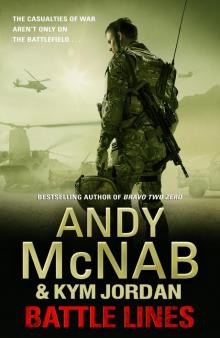 Battle Lines
Battle Lines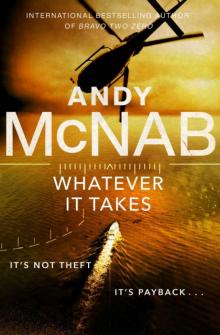 Whatever It Takes
Whatever It Takes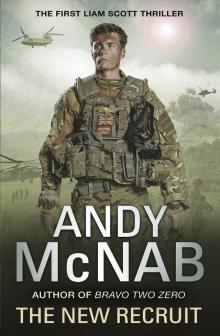 The New Recruit
The New Recruit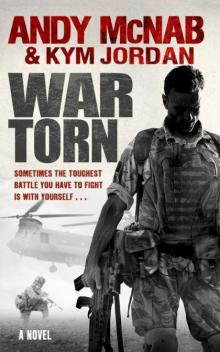 War Torn
War Torn Brute Force
Brute Force Crossfire
Crossfire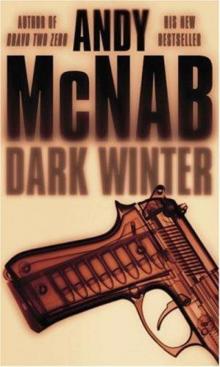 Dark Winter ns-6
Dark Winter ns-6 The Grey Man
The Grey Man Spoken from the Front
Spoken from the Front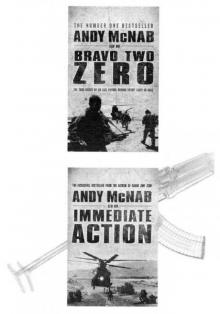 Meltdown
Meltdown Recoil
Recoil Nick Stone 1 - Remote Control.
Nick Stone 1 - Remote Control.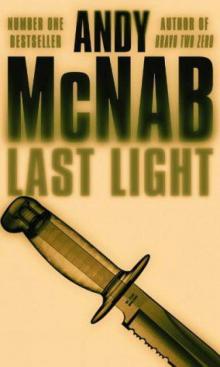 Last Light ns-4
Last Light ns-4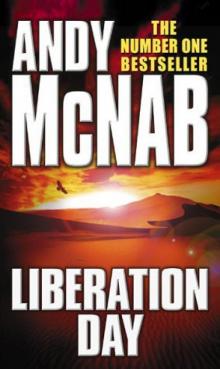 Liberation day
Liberation day Deep Black
Deep Black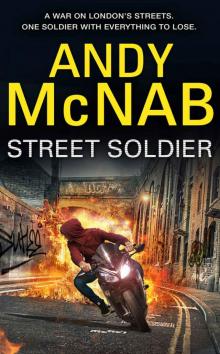 Street Soldier
Street Soldier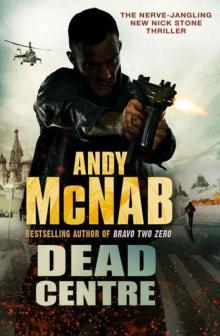 Dead Centre ns-14
Dead Centre ns-14 Exit wound ns-12
Exit wound ns-12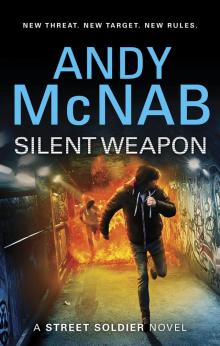 Silent Weapon
Silent Weapon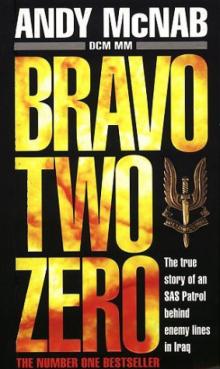 Bravo two zero
Bravo two zero Crisis Four ns-2
Crisis Four ns-2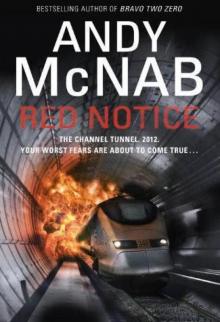 Red Notice
Red Notice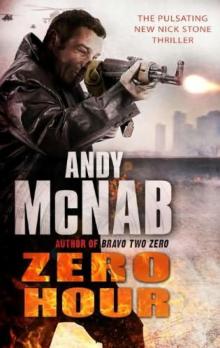 NS13 Zero Hour
NS13 Zero Hour Firewall
Firewall Last Light
Last Light Aggressor
Aggressor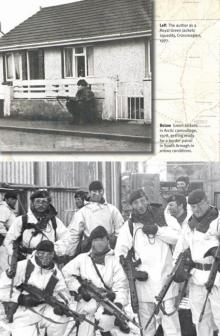 Seven Troop
Seven Troop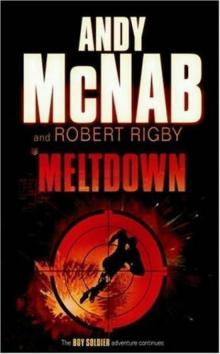 Meltdown bs-4
Meltdown bs-4 The Grey Man (quick reads)
The Grey Man (quick reads)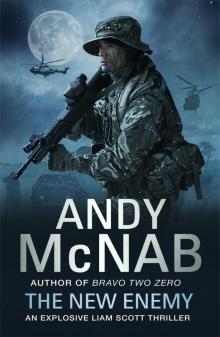 The New Enemy
The New Enemy Avenger
Avenger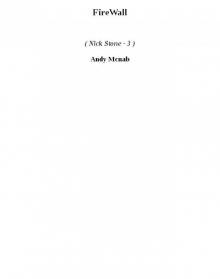 FireWall ns-3
FireWall ns-3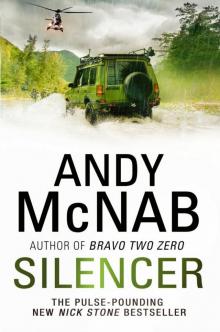 Silencer
Silencer Last Night-Another Soldier…
Last Night-Another Soldier…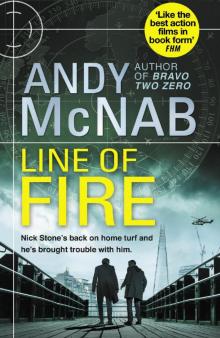 Line of Fire:
Line of Fire: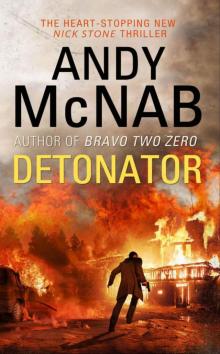 Detonator
Detonator Deep Black ns-7
Deep Black ns-7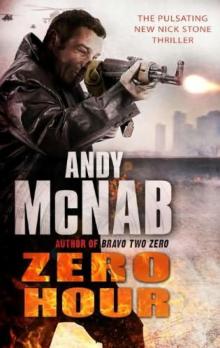 Zero Hour (2010) ns-13
Zero Hour (2010) ns-13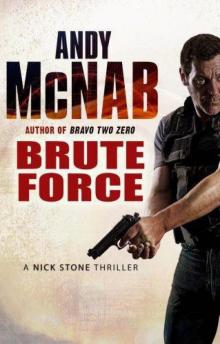 Brute Force ns-11
Brute Force ns-11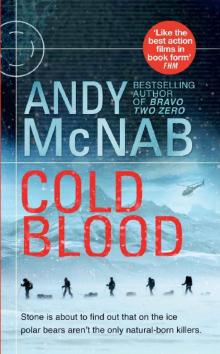 Cold Blood
Cold Blood Terminal Velocity
Terminal Velocity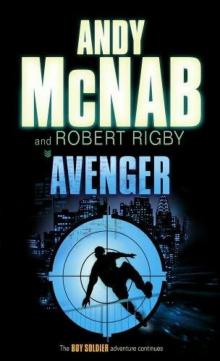 Avenger bs-3
Avenger bs-3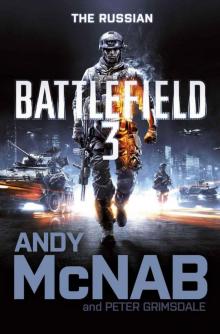 Battlefield 3: The Russian
Battlefield 3: The Russian DropZone
DropZone Zero Hour
Zero Hour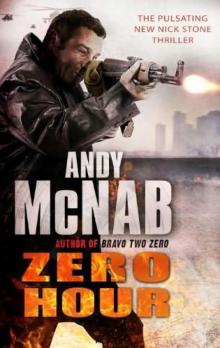 NS13 Zero Hour (2010)
NS13 Zero Hour (2010)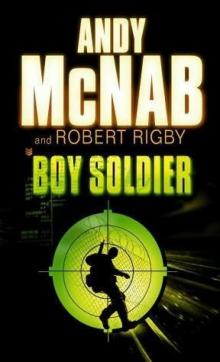 Boy soldier bs-1
Boy soldier bs-1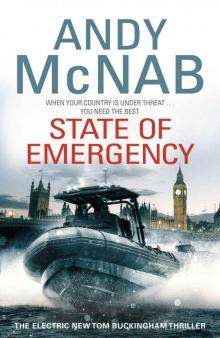 State Of Emergency: (Tom Buckingham Thriller 3)
State Of Emergency: (Tom Buckingham Thriller 3)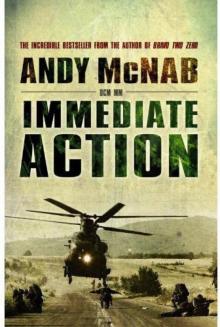 Immediate Action
Immediate Action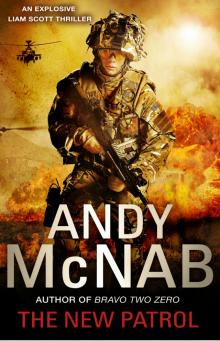 The New Patrol
The New Patrol Crisis Four
Crisis Four Boy Soldier
Boy Soldier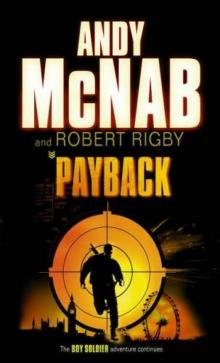 Payback bs-2
Payback bs-2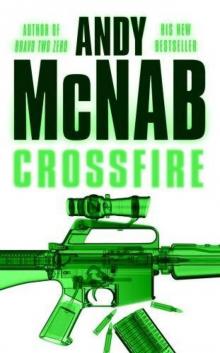 Crossfire ns-10
Crossfire ns-10 Today Everything Changes: Quick Read
Today Everything Changes: Quick Read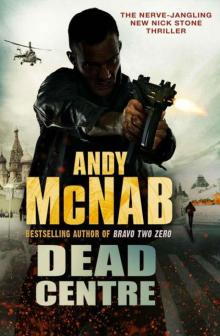 Dead Centre
Dead Centre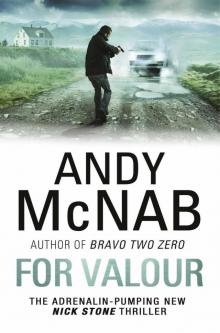 For Valour
For Valour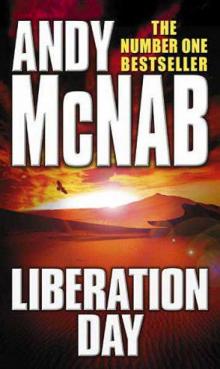 Liberation Day ns-5
Liberation Day ns-5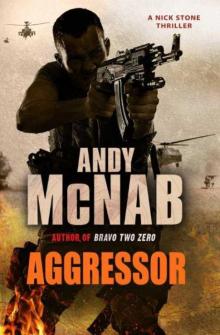 Aggressor ns-8
Aggressor ns-8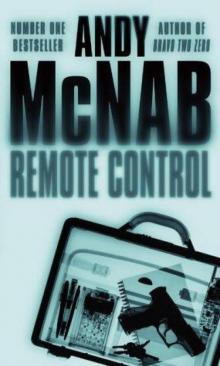 Remote Control ns-1
Remote Control ns-1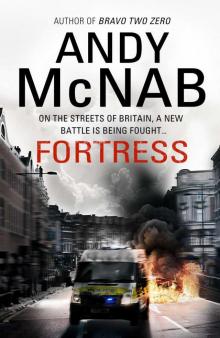 Fortress
Fortress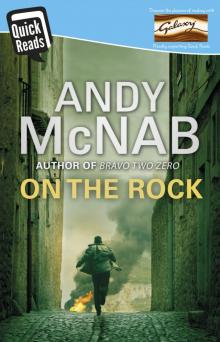 On the Rock
On the Rock Dark Winter
Dark Winter